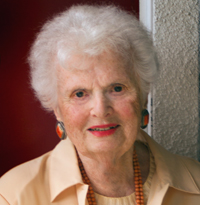By Natasha Josefowitz, ACSW, Ph.D.

LA JOLLA, California — What is it in our human genes that makes us forever dissatisfied with what we have and with what is? Why do we look for a way of obtaining more? More of what?
I see three areas of possible strivings, conflict and reasons for war: power, territory and different belief systems. Power exhibits itself in how much influence and control one has over others, whether it is a crown for which one kills all possible contenders or the title of president for which one fights by using the media to create misinformation. Power includes access to resources such as money, control of industries or technologies. Territory is the insatiable need to own more land and control over larger or larger areas. Conquering territories whether by Alexander the Great, Genghis Khan, Hitler, or Putin, is part of history. Belief systems are imposing religion, such as with the Crusades, or enforcing political ways of governing, such as communism or democracy.
In the February 18, 2o22 issue of The New York Times, David Brooks writes that wars are normal and peace is not. Authoritarianism is normal; democracy is not. Our human history is about wars, exploitation, larger nations crushing smaller ones. He quotes Samuel Adams: “Ambition and lust for power are predominant passions in the breast of most men.” Open the history of any nation and we will find parallels.
If you read about China, you will see centuries of feudal lords battling with each other and a series of dynasties and monarchies with endless murders of succession. As a child in France, I grew up reading about kings, dukes and princes killing each other for a territory or a crown. England has had its share of power ploys and killings. Other countries have their battling barons, cardinals, or czars. Newspapers report about tribal warfare in Africa, unrest in the Middle East, feuding gangs in South America or in the streets of Los Angeles.
The financial pages are not much better with takeovers, mergers, fraud, and lawsuits. The society page has its share of bitter divorces, child custody battles, and fights over inheritance. We are all like small time feudal lords still fighting for a piece of the pie. Some only want their fair share; others want their share and yours. Is it an instinctual push to keep acquiring more? Is the need for constant challenge built in our genetic code? It seems that as soon as we achieve some success, we look for other areas to conquer.
During the Bronze Age, excavations in the Middle East unearthed only burnt remains of villages. Many biblical stories are about conquests and destructions, the killing of whole populations or enslaving them. We can start with the Canaanites, who were conquered by the Assyrians, who were conquered by the Babylonians, then overtaken by the Persians, replaced by the Macedonians, and then by the Romans, the Muslims, followed by the Christian Roman Catholics (Western Europe). Today we are experiencing yet another war by the Eastern Orthodox armies under Putin. I find it upsetting that nowhere is there a history of continued or prolonged peace. Yet the majority of the world population desires to live in peace and security.
Sometimes when I watch TV I am astounded how the same news have no resemblance when reported by different channels. We tend to be attached to long-held beliefs or loyal to the beliefs of our group. To quote David Brooks, “People who lack information are constantly liable to be mislead.” The knowledge of the pros and cons of various systems, whether political, religious, economic, or social should be the goal of our educational system. The problem is that most people would prefer to seek what is most profitable for themselves rather than sacrifice any creature comfort for the common good, whether to benefit a particular people or our planet. In other words, we must educate people for both public service and care for our planet.
Are we stuck into endless conflicts? Is there no way out? So far, it has not happened. I am hopeful that having a new media at our disposal in the internet, we can reach people and educate the masses to the advantages of peaceful coexistence. In the U.S. we tend to value individual success stories. In Japan what is valued most is the success of the group. Children raised in a kibbutz in Israel have learned to defer to their group and place their own needs and wishes on the back burner. Perhaps we can learn to value the common good above our own interests. This effort should start early… kindergarten anyone?
*
© Natasha Josefowitz. This article appeared initially in the La Jolla Village News. You may comment to natasha.josefowitz@sdjewishworld.com
“Only the dead have seen the end of war.”